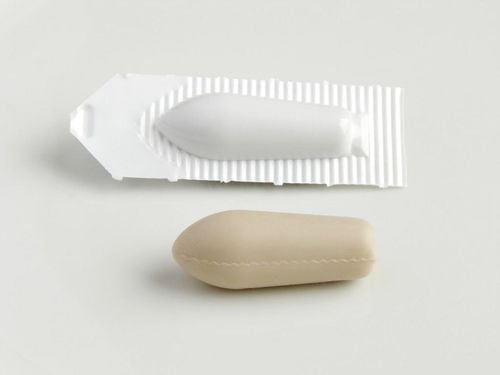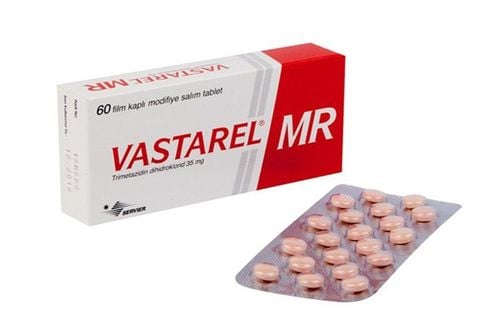Concor contains the active ingredient bisoprolol fumarate, indicated for the treatment of hypertension, coronary artery disease, and stable chronic heart failure with reduced left ventricular systolic function. Learn more about its uses and precautions in the article below.
1. Uses of Concor Tab
What is Concor 5mg?
Concor tablets, containing bisoprolol fumarate, are available in two strengths: 2.5mg and 5mg. They are indicated for the following conditions:
- Treatment of hypertension.
- Treatment of angina pectoris (coronary artery disease).
- Treatment of stable chronic heart failure combined with reduced left ventricular systolic function (used with diuretics, ACE inhibitors, and cardiac glycosides).
2. Recommended dosage of Concor tab
When should Concor be taken, and what is the recommended dosage? Concor is a prescription cardiovascular drug, and its use in treatment requires a doctor’s prescription. The following dosage information is for reference purposes only. Patients should never self-medicate and must follow their doctor's instructions carefully. The recommended dosages for specific conditions are as follows:
- Treatment of coronary artery disease and hypertension: Dosages are adjusted individually based on the patient’s clinical condition (especially heart rate and response to treatment). The usual starting dose is 5 mg bisoprolol taken once daily. For patients with mild hypertension (diastolic blood pressure <105 mmHg), a dose of 2.5 mg once daily may be used. In some cases, the dose may be increased to 10 mg/day (2 tablets of Concor tab 5 mg). The maximum recommended dose is 20 mg/day.
- Treatment of stable chronic heart failure: Medications for stable chronic heart failure include ACE inhibitors (or angiotensin receptor blockers if ACE inhibitors are not tolerated), diuretics, beta-blockers, and cardiac glycosides as appropriate. Patients with heart failure must undergo evaluation and monitoring by a treating physician before initiating Concor therapy. The starting regimen should follow standard guidelines and can be adjusted based on individual tolerance. The initial treatment plan with Concor is typically:
- Week 1: 1.25 mg bisoprolol once daily;
- Week 2: 2.5 mg bisoprolol (½ tablet of Concor tab 5 mg) once daily;
- Week 3: 3.75 mg bisoprolol once daily;
- Week 4–7: 5 mg bisoprolol once daily;
- Week 8–11: 7.5 mg bisoprolol once daily;
- Week 12 onward: 10 mg bisoprolol (2 tablets of Concor tab 5 mg) once daily.
During the dose adjustment phase or afterward, if symptoms such as worsening heart failure, bradycardia, or hypotension occur, adjustments to concomitant medications or reducing the Concor dose should be considered. In some cases, discontinuation of the drug may be necessary.
- Duration of treatment: For all indications, Concor tab 5 mg is usually prescribed for long-term use. Discontinuation is possible when necessary, and treatment may resume at an appropriate dose if required.
Special considerations for specific groups:
- For liver and kidney impairment:
- In coronary artery disease and hypertension: No dose adjustment is needed for mild to moderate impairment. For severe renal impairment (creatinine clearance <20 ml/min) or severe liver impairment, the dose should not exceed 10 mg/day.
- In stable chronic heart failure: There is no pharmacokinetic data for bisoprolol use in heart failure patients with renal or liver impairment, so caution is advised.
- For elderly patients: No dosage adjustment is required.
- For children: There is insufficient data on bisoprolol use in children; therefore, it is not recommended for pediatric patients.
3. Side Effects of Concor Tab
Common side effects of Concor 5mg may include the following:
- Common: Bradycardia (in heart failure patients), worsening heart failure, headache, dizziness, nausea, vomiting, diarrhea, hypotension, cold or numb extremities, asthma, fatigue.
- Less common: AV block, bronchospasm (in asthma or obstructive airway disease), muscle weakness, cramps, erectile dysfunction.
- Rare: Syncope, hearing impairment, reduced tear production, allergic rhinitis, hypersensitivity reactions (rash, itching), hepatitis, nightmares, hallucinations.
- Very rare: Conjunctivitis, hair loss.
4. Precautions When Using Concor Tab
4.1. Contraindications
Do not use Concor 5mg in the following cases:
- Acute heart failure or decompensated heart failure requiring IV inotropic therapy.
- Cardiogenic shock.
- Severe AV block (grade II or III) without a pacemaker.
- Sinus node dysfunction.
- Symptomatic bradycardia.
- Symptomatic hypotension.
- Severe asthma.
- Advanced peripheral artery disease or Raynaud's syndrome.
- Untreated pheochromocytoma.
- Metabolic acidosis.
- Hypersensitivity to bisoprolol or any component of Concor 5mg.
4.2. General precautions
- Diabetes: Monitor for symptoms of hypoglycemia.
- Strict fasting: Use cautiously.
- Allergies: May increase sensitivity to allergens.
- Mild AV block (Grade I): Use cautiously.
- Angina variant (Prinzmetal’s angina): Use with care.
- Psoriasis: Use cautiously in patients with a history of psoriasis.
- Peripheral artery disease: Symptoms may worsen, especially early in treatment.
5. Drug interactions with Concor tab
Drug combinations that should not be used:
- For stable chronic heart failure:
- Antiarrhythmic drugs of class I (e.g., disopyramide, quinidine, lidocaine, phenytoin, flecainide, propafenone) may increase the inhibitory effects of Concor on myocardial contractility and atrioventricular conduction.
- Calcium channel blockers of the diltiazem and verapamil types can slow atrioventricular conduction and reduce myocardial contractility. Notably, intravenous administration of verapamil in patients treated with beta-blockers may cause atrioventricular block and severe hypotension.
- Centrally acting antihypertensive drugs (e.g., methyldopa, clonidine, rilmenidine, moxonidine) can reduce cardiac output, decrease heart rate, and induce vasodilation due to reduced sympathetic tone.
Drug combinations requiring caution:
- Dihydropyridine calcium channel blockers (e.g., nifedipine):
Co-administration with Concor may increase the risk of hypotension.
In patients with latent cardiac insufficiency, the combination may worsen heart failure.
- Antiarrhythmic drugs of class III (e.g., amiodarone):
These drugs may enhance the inhibitory effects of Concor on atrioventricular conduction.
- Beta-blockers used in ophthalmology (e.g., beta-blocking eye drops for glaucoma):
They can exert systemic effects and augment the action of Concor.
- Parasympathomimetic drugs:
These may increase the inhibitory effects of Concor on atrioventricular conduction and elevate the risk of bradycardia.
- Antiarrhythmic drugs of class I (e.g., disopyramide, quinidine, phenytoin, lidocaine, propafenone):
Co-administration with Concor can enhance its inhibitory effects on myocardial contractility and atrioventricular conduction.
- Anesthetics:
Anesthetic agents may intensify the cardiodepressive effects of Concor, leading to hypotension.
- Cardiac glycosides:
These can prolong atrioventricular conduction time, potentially leading to bradycardia when combined with Concor.
- Non-steroidal anti-inflammatory drugs (NSAIDs):
These may reduce the antihypertensive effects of Concor.
- Beta-sympathomimetic agents (e.g., dobutamine, isoprenaline):
Simultaneous use with Concor may decrease the efficacy of both drugs.
Drug combinations requiring careful consideration:
- Mefloquine:
This drug may increase the risk of bradycardia when combined with Concor.
- MAO inhibitors (except MAO-B inhibitors):
They may enhance the blood pressure-lowering effects of beta-blockers, but there is also a risk of hypertensive crisis.
- Rifampicin:
This may reduce the half-life of bisoprolol when used together.
- Ergotamine derivatives:
Co-administration may exacerbate peripheral circulatory disorders.
To arrange an appointment, please call HOTLINE or make your reservation directly HERE. You may also download the MyVinmec app to schedule appointments faster and manage your reservations more conveniently.













